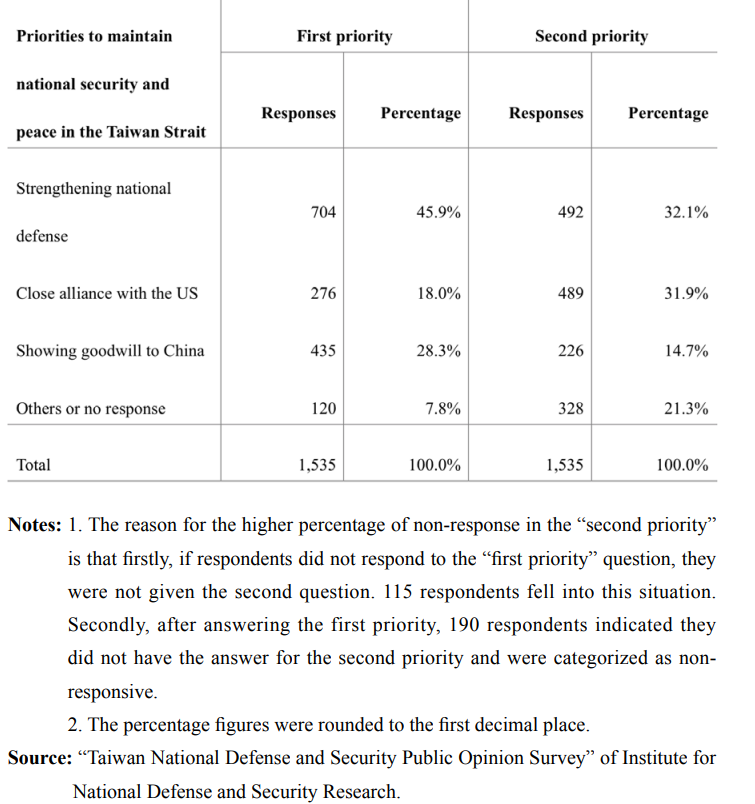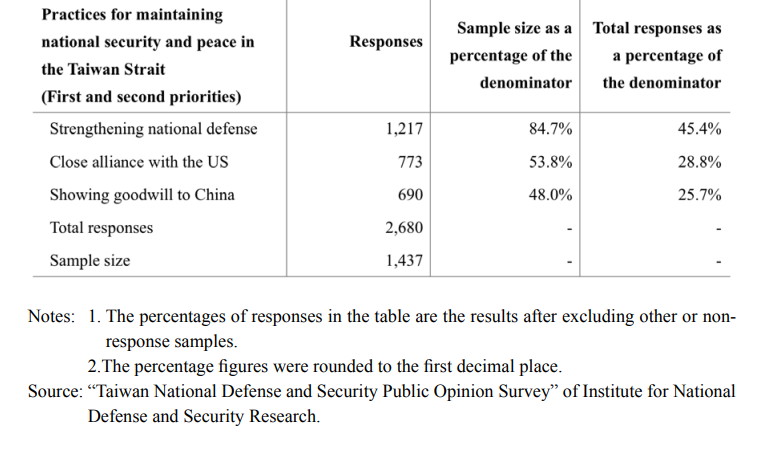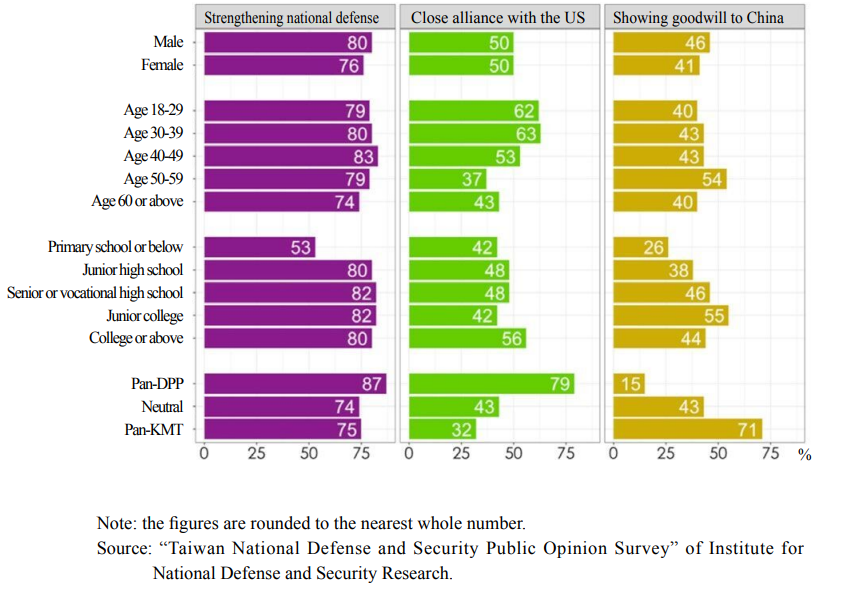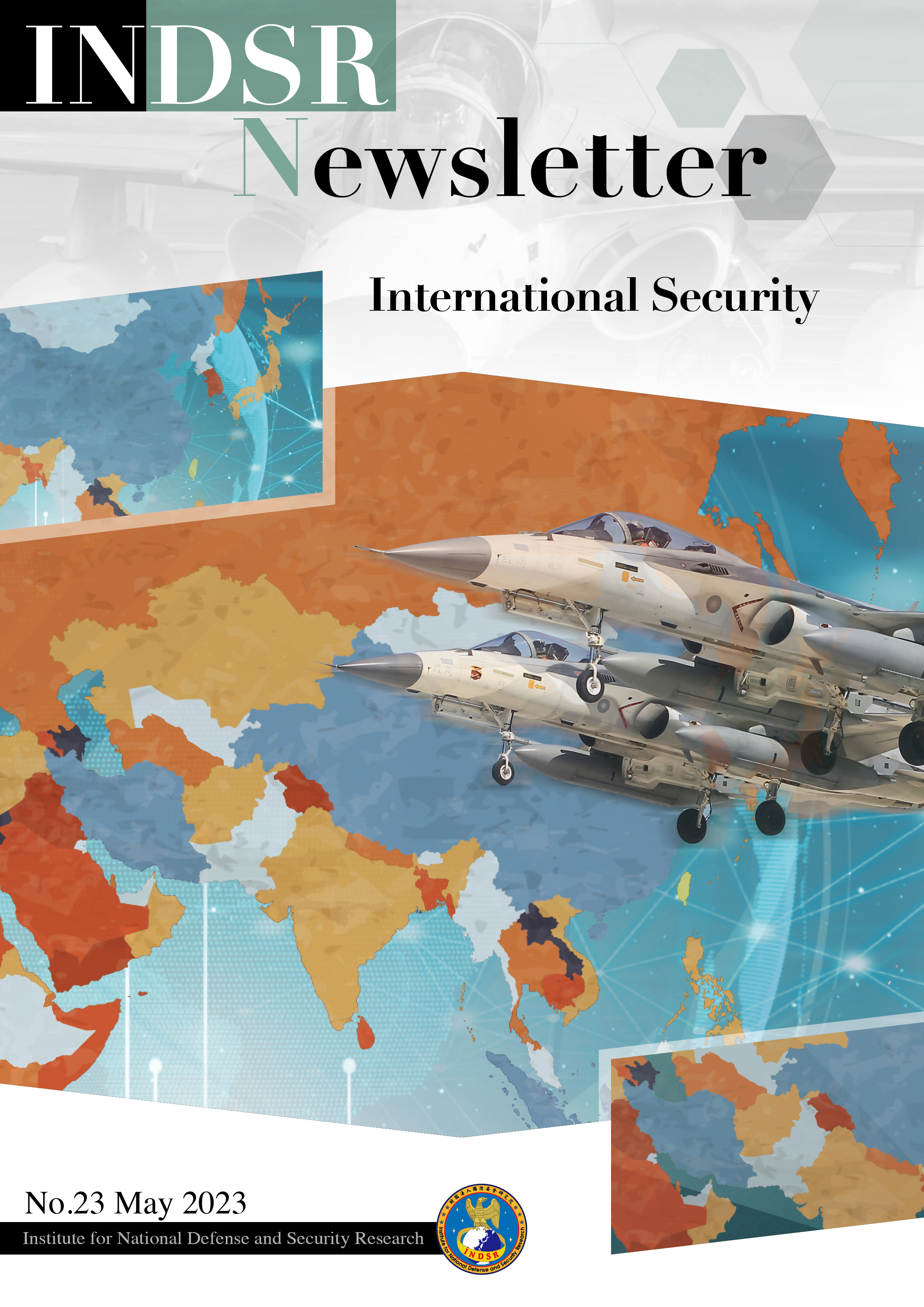Beyond Pro-US and Peace with China: Taiwan’s Strategic Choice to Strengthen Its National Defense
2023.06.02
Views
1241
PDF link:
In late March of 2023, Taiwan’s former President Ma Ying-jeou and current President Tsai Ing-wen made their respective overseas visits. Ma Ying-jeou’s trip to pay respects to his ancestors made him the first former Taiwanese president to visit China. On the other hand, President Tsai Ing-wen took the opportunity to meet with Speaker of the US House of Representatives Kevin McCarthy in California during a visit to Central America, making her the first current Taiwanese leader to meet with the US Congress Speaker on US soil in Taiwan’s diplomatic history. As said by Wu Yushan, an academician of Academia Sinica, “Taiwan is, in fact, like other small- and medium-sized countries in the world, caught between two major powers and facing a difficult choice of the international situation. It is forced to choose sides.” [1] However, how can Taiwan develop a strategy with social consent in the face of the two great powers, the US and China? Will the Taiwanese people accept this strategy? In this article, the author will attempt to understand the strategic choices of Taiwanese people through public opinion surveys.[2]
“Strengthened national defense” wins higher priority and acceptance
The survey measures people’s strategic choices through two questions. Firstly, “In your opinion, what is the most important action that the Taiwanese government should take at this stage to maintain national security and peace in the Taiwan Strait? Should it be strengthening defense capabilities, forging a close alliance with the US, or showing goodwill to China? (The options were read in random order by the interviewers)” Secondly, “What is the second most important thing to do?” The results are shown in Table 1 below.
Regarding the most important way to maintain national security and peace in the Taiwan Strait, the survey showed that about 45.9% of the public advocated “strengthening national defense,” the highest percentage, followed by “showing goodwill to China” (28.3%), and finally “close alliance with the US” (18.0%). In terms of the second most important, “strengthening national defense” continues to take the highest percentage. In the entire sample, about 32.1% of the respondents chose “strengthening national defense” as the second most important way to maintain national security and peace in the Taiwan Strait, followed by “close alliance with the US” (about 31.9%) and lastly, “showing goodwill to China” (about 14.7%). The results show that regardless of whether it is a primary or secondary approach, “strengthening national defense” is the priority for most Taiwanese people at this stage to maintain national security and peace.
Table 1: Percentage of the most and second most important practices to maintain national security and peace in the Taiwan Strait

Further analysis of the combined first and second priorities for maintaining national security and peace in the Taiwan Strait generated results shown in Table 2 below. Among the 1,437 valid samples, the number of times respondents mentioned “strengthening national defense” at least once as their first or second priority was 1,217, accounting for 84.7% of the valid sample size. It means that more than 84% of the respondents chose “strengthening national defense” as their primary or secondary answer. By calculating the percentage of responses based on the total number of responses, it is evident that 45.4% of individuals favor the option of “strengthening national defense,” making it the most commonly approved choice. The combined analysis also shows that “a close alliance with the US” is the second most popular choice. For example, more than 50% (53.8%) of the respondents mentioned “a close alliance with the US” as their first or second priority for maintaining Taiwan’s national security. Lastly, although “showing goodwill to China” was less frequently mentioned and ranked third in acceptance, but the difference between this option and “a close alliance with the US” was insignificant in frequency or percentage.
Table 2: Taiwanese people’s acceptance of the practices for maintaining national security and peace in the Taiwan Strait

Strengthening national defense is the only acceptable strategic choice for both the ruling and opposition party supports.
Next, this article further examines the association between the demographic variables of the respondents and the three strategic options. Figure 1 shows the percentage of respondents who chose at least one of the first and second priorities to maintain national security and peace in the Taiwan Strait. As mentioned, the priority and acceptance of “strengthening national defense” is high among all gender, age, education level (except for those below primary school) groups, and even all political party identifications. Regarding “a close alliance with the US,” the option is more favored by those under 39 years old but less by those over 50; this could be attributed to the fact that the older generation had experienced the Taiwan-US diplomatic breakup while growing up. In addition to the support gap across age groups, as shown in previous research, there is a considerable difference in the attitudes of different political party identifiers toward “a close alliance with the US.” For example, 79% of the pan-DPP identifiers preferred “a close alliance with the US,” but the percentage slipped below 50% among the neutral or pan-KMT identifiers. Similarly, “showing goodwill to China” also faces a political ideology dilemma. More than 70% (71%) of the pan-KMT supporters saw it as a way to maintain Taiwan’s security and peace, but less than 50% of the neutral and pan-DPP supporters opted for this option. It can be seen that “strengthening national defense” is the solution shared by political parties of different ideologies.
Figure: Cross-tabulation analysis of demographic variables and strategic choices

In summary, strengthening national defense to ensure Taiwan’s security is neither a distancing from the US nor a hostility against China. The US government’s Taiwan Relations Act, the Six Assurances, and arms sales have long been indispensable barriers to Taiwan’s security. Meanwhile, since China’s military spending has grown to more than ten times that of Taiwan over the years and is geographically separated from Taiwan only by a strait, it’s also unwise to remain hostile against China. Therefore, the strategic choice of the Taiwanese people to “strengthen national defense” reflects their choice based on the national interests and the international situation; it is also the common ground for safeguarding Taiwan’s national security and promoting peace in the Taiwan Strait at this stage.
(Originally published in the “National Defense and Security Real - time Assessment”, April 26, 2022, by the Institute for National Defense and Security Research.)
(The contents and views in the assessments are the personal opinions of the author, and do not represent the position of the Institute for National Defense and Security Research.)
[1] From Yichen Wang’s interview report, “Yushan Wu: How far are we from a war? The Strategy of a Small State among Major Powers,” Research that Makes Sense, Academia Sinica, August 25, 2020, https://research.sinica.edu.tw/global-strategies-pivot-hedger-partner/.
[2] This is a telephone survey commissioned by the Institute for National Defense and Security Research and conducted by the Election Research Center of National Chengchi University (NCTU) among adults aged 18 and above living in Taiwan (excluding the Kinmen and Matsu Islands). The survey took place from March 23 to March 29, 2023. The survey expanded the sample of young people according to the statistical population proportion to ensure the samples between 18 and 39 years old reached more than 500. A total of 1,535 samples were collected from 677 house telephone samples and 858 mobile phone samples. The samples were weighted according to gender, age, education level, and place of residence by the “raking” method and were not significantly different from the population. The maximum possible random sampling error was estimated at the 95% confidence level: ±2.50%. The authors would like to thank the aforementioned organizations and people for their assistance in providing information, while the contents of this article are the author’s sole responsibility.
[3] Chien-wu Alex Hsueh, “Bandwagoning, Hedging, Balancing, or Isolation? Probing Taiwanese Public Opinion toward These Four China Policy Alternatives,” Taiwan Democracy Quarterly, Vol. 19, No. 1, March 2022, pp. 83-84.


